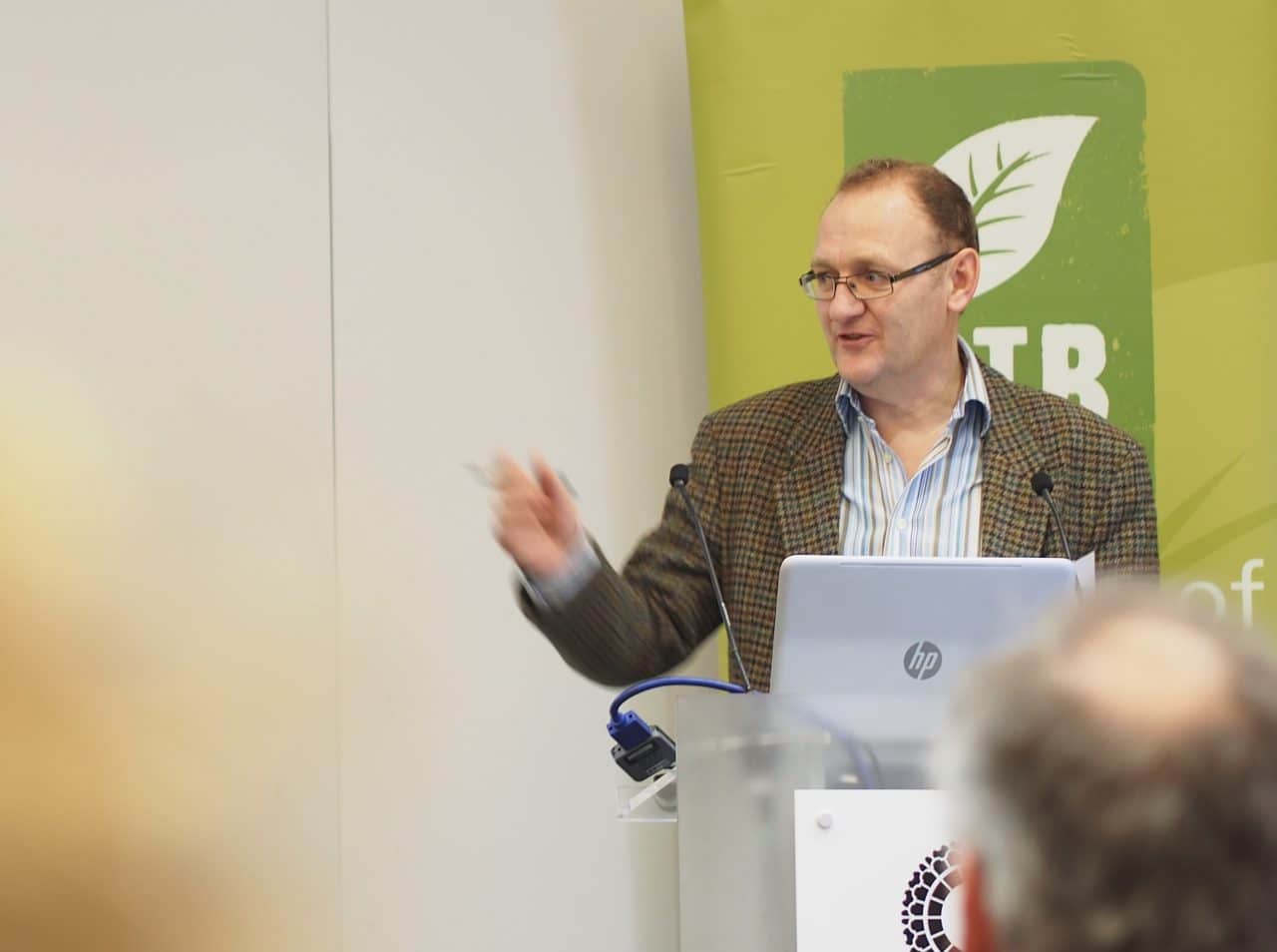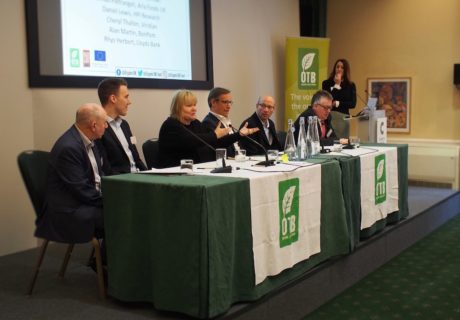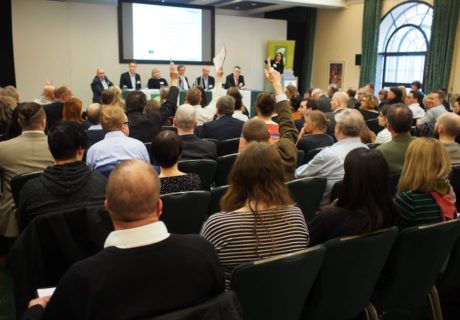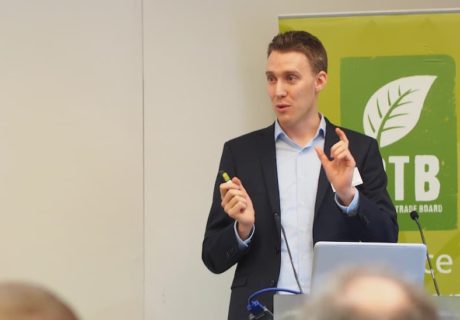Just eight weeks after confirming it had secured €10.4 million in EU funding, the Organic Trade Board (OTB) has announced ambitious targets for the UK organic market.
At a special ‘#GrowOrganic17’ event in London yesterday, senior OTB figures told a packed room that the UK organic sector was in its best state of health for years.
With funding secured for its consumer marketing campaign for the next three years, the OTB says the UK organic sector must now work hard to capitalize on the opportunity
OTB chairman Adrian Blackshaw said that the group’s aim was to grow the UK organic market 1% per year, to get to a 10% share of the total food and drink market by the end of the next decade.
Platform for the future
Chief executive Paul Moore said: “Organic is really getting to a critical mass – something that can form a platform for food for the future”. He said there had been a “significant change in the tone of voice” on organic at government level in many parts of Europe.
“The UK’s organic performance is good, but it isn’t great”
But Moore noted that while UK organic sales growth (at 7.1% in 2016) was good, it wasn’t great. Market share, at 1.4%, remained low in comparison with other similar-income countries in Europe. He pointed out that the US organic sector was also outpacing the UK. In America, he said, organic commands a 4.5% share of total food and drink sales, while 13% of all produce sold is organic.
 OTB’s campaign manager Catherine Fookes told the audience of over 130: “I think we are in the strongest position we’ve been in for many years. Reviewing the 2016 consumer campaign – with its #OrganicUnboxed theme – she said the digital emphasis of the campaign had proved highly effective. One video, presented by the food blogger Madeleine Shaw, had been viewed 2 million times, while – accumulatively – the campaign had achieved 14.7 million digital impressions. 2016 also saw the launch of a weekly ‘organic hour’ event on social media, and a major partnership with Tesco.
OTB’s campaign manager Catherine Fookes told the audience of over 130: “I think we are in the strongest position we’ve been in for many years. Reviewing the 2016 consumer campaign – with its #OrganicUnboxed theme – she said the digital emphasis of the campaign had proved highly effective. One video, presented by the food blogger Madeleine Shaw, had been viewed 2 million times, while – accumulatively – the campaign had achieved 14.7 million digital impressions. 2016 also saw the launch of a weekly ‘organic hour’ event on social media, and a major partnership with Tesco.
Fookes said that consumer understanding of organic had improved measurably in the six years that the Organic. Naturally Different campaign had been running. She highlighted research by analysts HPI, which showed how consumer attitudes had changed in key areas. For example, fewer people think that organic is expensive (53% compared to 79%), and there has been an increase in the belief that organic protects wildlife (93% compared to 73%).
The HPI research also provided evidence of the changing organic demographic. Most strikingly, it showed that 65% of consumers who regularly buy organic in the UK entered the organic market after the recession, 28% of them in the last two years.
Because I’m happy …
The OTB also gave a preview of the 2017 campaign, to be built around the strapline ‘Organic. Feed Your Happy’.
Explaining the thinking behind the feel and tone of the new campaign Wendie Stone, from the TBWA agency, said that trying to fully understand the context in which people buy food provided the impetus for the ‘happy’ theme. “We know that organic suffers from a lack of prioritization when people are supermarket shopping – they go on autopilot. But there is an additional obstacle to get over – the fact that healthy eating options can seem joyless, requiring effort and commitment. We need to overcome the apathy around ‘making healthy choices’ – and be more celebratory in our message. So we’re adding happiness to organic – which makes it an easier choice to defend too.”
” … we’re adding happiness to organic – which makes it an easier choice to defend too”
The new campaign launches in late May, so advertising copy and digital promotions are still at the ideas stage (one important consideration is that messaging and images must work equally well in both the UK and Demark). Likewise campaign ambassadors have yet to be signed up, although the OTB revealed that Fearne Cotton, Cerys Matthews and Rachel Allen are on its wish list – as is Meik Wiking, author of the best-selling The Little Book of Hygge and, appropriately, CEO of the Happiness Research Institute in Copenhagen.














